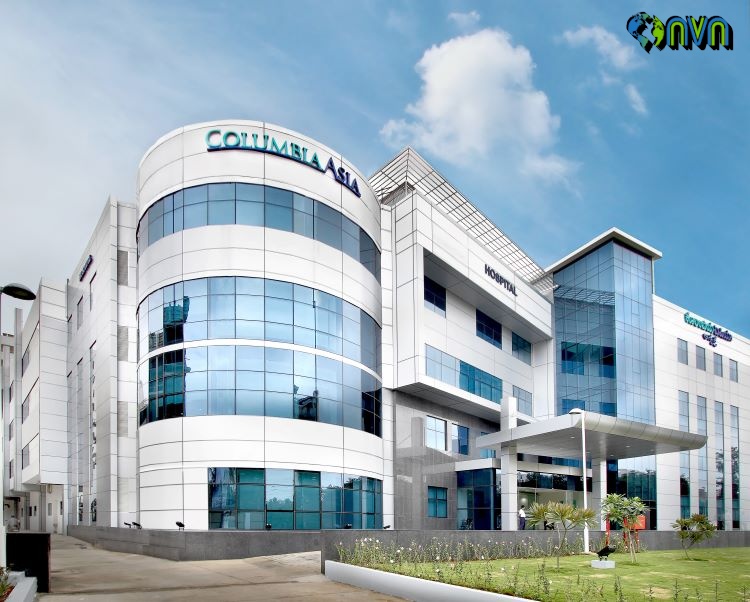Medical & Pharma
COVID 19 – Plot Thickens As The Blood Thickens

Rare Case Reported With COVID 19 Triggered Blood Clots In Kidney Arteries
Once considered as a flu-like infection, COVID-19 has gradually shown us that this is nothing like Influenza and related flu-like illnesses.
It has revealed its other myriad manifestations. Other than its well known respiratory manifestations, patients who are symptomatic with COVID-19 can show symptoms involving other organ systems.
Presentation with neurological problems, muscle pain, low platelets, cardiac problems, etc is not uncommon. Ignoring early symptoms of COVID-19 and subsequent delayed diagnosis/treatment has often led to respiratory complications resulting in hospitalization in serious to critical condition. Patients with co-morbidities such as uncontrolled diabetes, morbid obesity, renal failure, and immunocompromised conditions such as organ transplants, blood-related malignancies pose a far higher risk as opposed to patients without these pre-existing health conditions.
We have been fortunate to have faced the pandemic after several other countries earlier in the year. The experience of medical professionals from these countries has shed light on some complications of the viral infection that ultimately lead to fatality. One of the most worry-some and life-threatening complications with COVID 19 is the formation of blood clots in multiple arterial systems. These blood clots or what is called ‘thrombosis’ occur in the arteries and prohibits/slow down blood flow. This can lead to stroke, heart attacks, and such. Hence one of the most important aspects of the treatment of COVID-19 in a significant number of patients includes medications that prevent or treat these blood clots.
30-year-old Mahesh (name changed on request) presented to the Emergency room in Columbia Asia Hospital, Whitefield with severe abdominal pain, a few days after being discharged from another hospital in the vicinity with COVID-19. He has subsequently admitted to the Columbia Asia hospital for treatment of “infarct” in the right kidney due to thrombosis or blood clots in the right renal artery. This was a complication of his recent COVID-19 infection.
Dr. Naveen Chandra, Consultant, Interventional Cardiologist, Dr.Narendra Reddy, Consultant, Vascular surgeon and Intensivist team lead by Dr.Ramkumar from Columbia Asia Hospital, Whitefield evaluated the patient for the unusual complication and started the treatment accordingly. Furthermore, an angiogram was performed and doctors confirmed the presence of blood clots or thrombosis in the right kidney. This led to ischemia or reduced blood supply to the kidney, leading to an infarct. Immediately, thrombus extraction was performed. He was managed with blood thinners (anti-coagulants) and COVID-19 related medications accordingly. The patient was successfully discharged within a week of admission.
Elaborating on the case Dr. Naveen Chandra, Consultant, Interventional Cardiologist, Columbia Asia Hospital Whitefield said “It has been shown very conclusively now that COVID-19 infection not only causes respiratory problems but also can induce blood clots in arteries leading to life-threatening complications and morbidity as well. We see an increase in the incidence of heart attacks, strokes, clots in pulmonary vessels during COVID-19 infection. Early recognition and timely treatment are crucial in improving outcomes for the disease”.
Dr.Indira Kedlaya, Consultant, Internal Medicine/Geriatrics, Columbia Asia Hospital Whitefield added “Initiation of anticoagulation (blood thinners) for few weeks are just as important as treating the infection itself in a large number of COVID patients. They are treated with injectable blood thinners in the early course of the disease and continued upon discharge either with injectable blood thinners or oral blood thinners for a few weeks. But in Mahesh’s case, he developed clots despite being on these medications. Hence a high index of suspicion is required to identify and successfully treat such complications. ”
Mahesh has now recovered and has been discharged from the hospital on oral blood thinners. He has followed up in the outpatient department and continues his recovery process.
MEDIA RELEASE


































